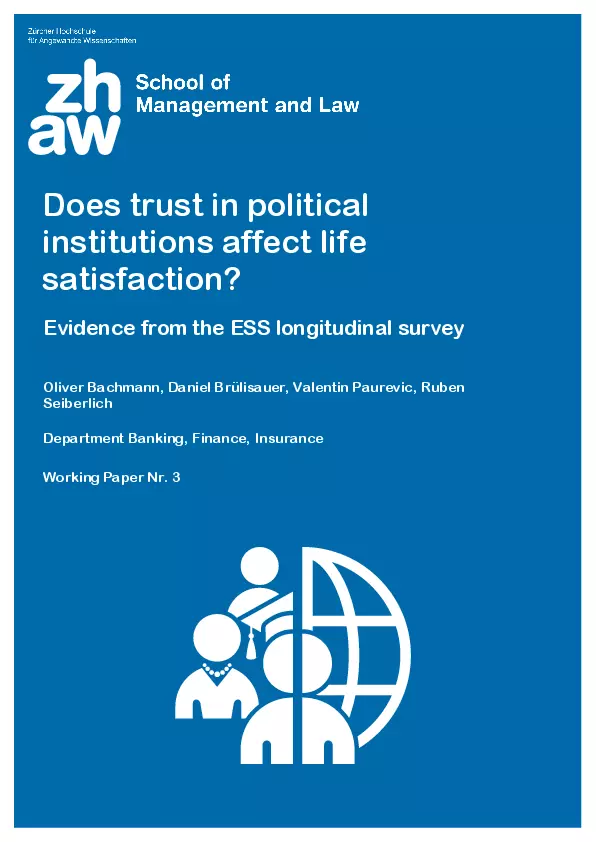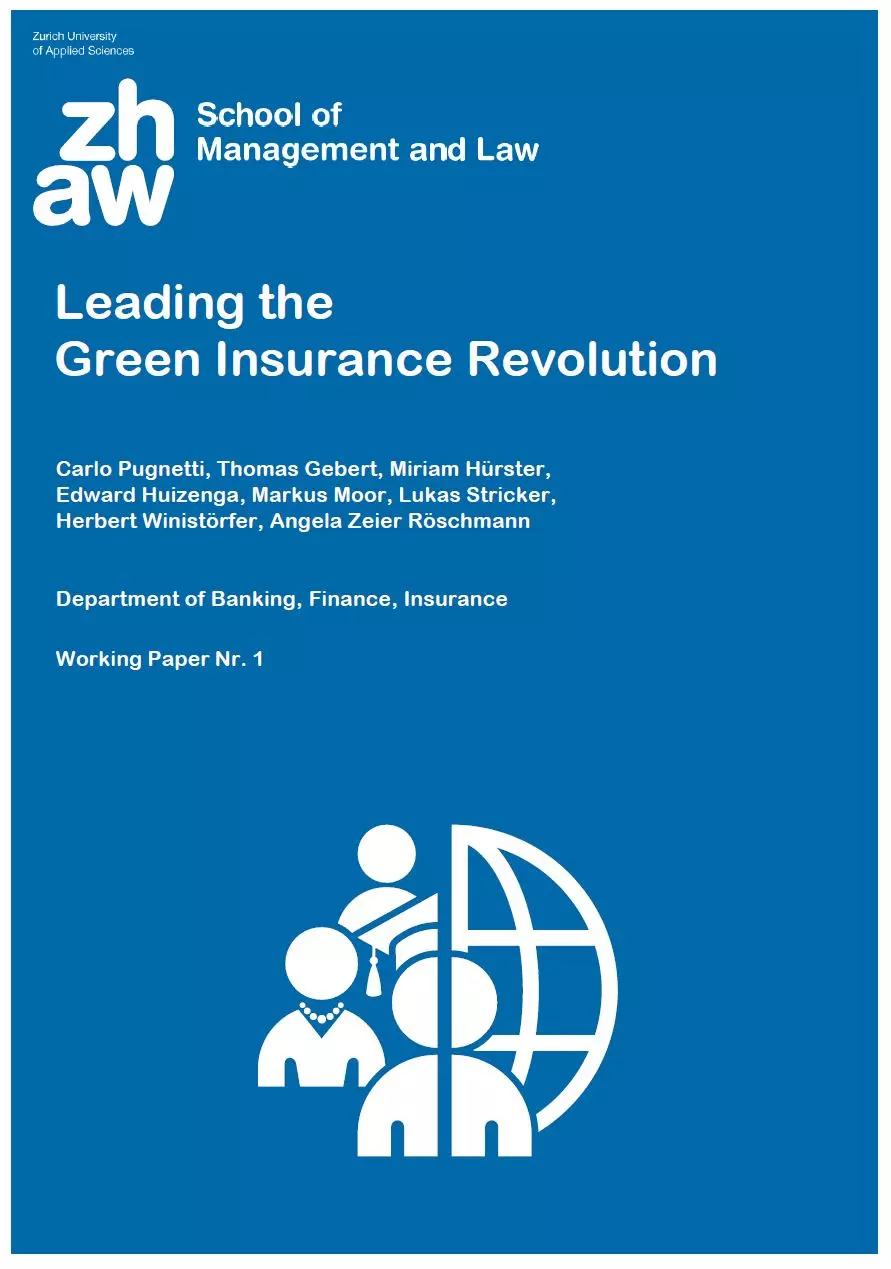ABF Working Papers
The ABF Working Paper Series provides a publication platform for the staff of the Department of Banking, Finance, Insurance, allowing them to publish preliminary research findings and scholarly articles on relevant topics.The papers present research results for suggestions and further revisions before submission to refereed journals. The ABF Working Paper Series also allows supervisors and students to jointly publish excellent final theses.
Working Paper Nr. 3: Does trust in political institutions affect life satisfaction?

Abstract
The determinants of life satisfaction have been the subject of academic research for decades. Several studies show the impact of, for example, age, income, or health. Controlling for demographic, personal factors, and economic factors we extend the existing literature by examining how trust in political institutions affects people’s life satisfaction. Our results indicate that trust in political institutions significantly increases the level of life satisfaction. Using logistic regressions, we also examine how trust impacts the probability of being satisfied with life and find that the probability of being satisfied with life increases by about 3.9 percentage points for each unit of trust. Moreover, we show that people living in Western Europe are, on average, more satisfied with life and confirm the U-shaped functional form of the dependence of life satisfaction on age described in the literature. Our results are robust with respect to different specifications.
Working Paper Nr. 2: Nachhaltigkeit in der Versicherung aus Sicht von besonderen Anspruchsgruppen

Abstract
Durch verstärkten politischen als auch gesellschaftlichen Diskurs hat das Thema Nachhaltigkeit immer mehr an Popularität und Relevanz gewonnen. Aufgrund dessen haben sich auch die Anforderungen und Bedürfnisse von Kunden und anderen Anspruchsgruppen an Unternehmen grundlegend verändert. In Bezug auf die Versicherungsbranche ist in der Literatur bisher noch wenig erforscht, welche Erwartungen Versicherungskunden an das Nachhaltigkeitsengagement von Versicherungsunternehmen haben oder wie sie deren Engagement wahrnehmen.
In diesem Zusammenhang geht das vorliegende Working Paper der Frage nach, in welchen Bereichen, von Versicherungskunden, ein erhöhtes Nachhaltigkeitsengagement präferiert wird, wie hoch die Kundenerwartungen an das Engagement von Versicherungsunternehmen sind und wie stark dieses Engagement von den Kunden wahrgenommen wird.
Das methodische Vorgehen basiert auf einer quantitativen Online-Umfrage und fokussiert sich dabei auf die vier Themenbereiche 17 Nachhaltigkeitsziele, Engagement für die Mitarbeitenden, Massnahmen zur Reduktion der unternehmensinternen Ökobilanz und Massnahmen zum Schutz vor Naturgefahren. Dabei wird die Einstellung von Mitarbeitenden des World Wildlife Funds (WWF) Schweiz im Vergleich mit jener der allgemeinen Schweizer Bevölkerung untersucht. Die Daten wurden mittels deskriptiver Statistik veranschaulicht und miteinander verglichen.
Die Ergebnisse zeigen signifikante Unterschiede zwischen den Antworten der WWF-Mitarbeitenden und jenen der Schweizer Bevölkerung in Bezug auf das präferierte, erwartete und wahrgenommene Engagement von Versicherungsgesellschaften. Die gewonnenen Erkenntnisse sollen Versicherungen helfen ein besseres Verständnis von Kudenerwartungen und -wahrnehmungen im Bereich der Nachhaltigkeit zu schaffen.
Working Paper Nr. 1: Leading the Green Insurance Revolution

Abstract
Anthropogenic climate change is a significant and growing challenge. Insurance has thus far not taken a leadership role in its response to the challenge, partly because of modeling uncertainties and partly because of unclear customer expectations. It is, however, too large a sector to wait on the sidelines and a more proactive approach is required. The demand for a program we developed for insurance companies in 2021 sends a positive signal for this development.
Insurers have started incorporating ESG criteria in their product and service development and have taken steps to control their environmental footprint. Both are challenging, as they involved deep collaboration across the organization and along the value chain. Investment management and risk management have also been evolving to meet the challenge, with the latter especially well-positioned to deliver also market-facing services to insurance customers. Claims handling, however, is not typically considered in an insurer’s footprint and has lagged behind. This is unfortunate, as the potential for a broader societal impact through claims is significant.
There are several best practices for transforming organizations to deliver more value along corporate responsibility criteria, and insurance companies need to make treasure of this experience. Further, they need to start developing their purpose beyond purely financial dimensions to align important stakeholders and deliver the promise of insurance as a social good in the 21st Century.
Editors and Contact

ZHAW School of Management and Law
Leiterin Abteilung Banking, Finance, Insurance

ZHAW School of Management and Law
Abteilung Banking, Finance, Insurance